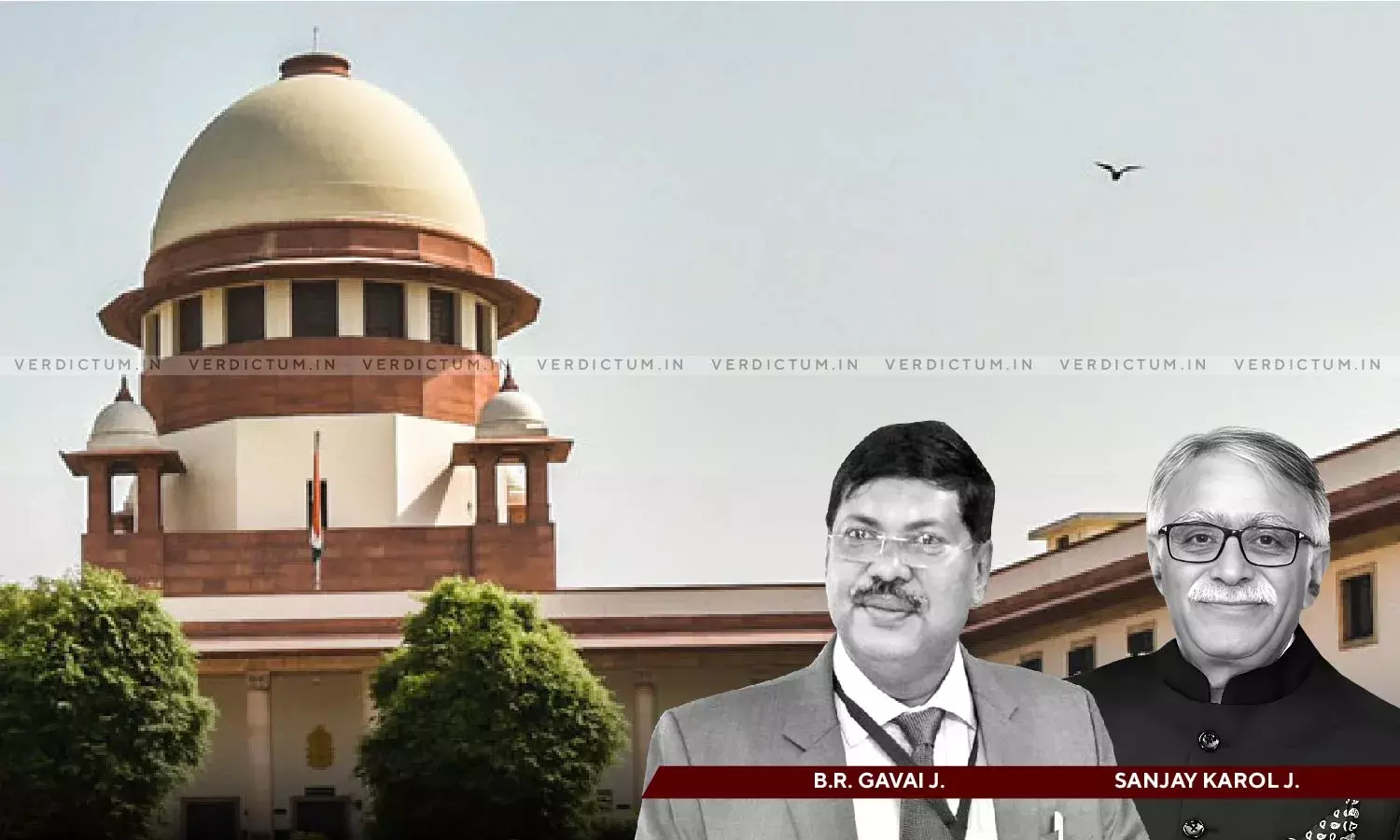Circumstances Do Not Conclusively Establish Guilt Of The Accused- SC Acquits Murder Accused

The Supreme Court while acquitting a man in a murder case has held that the presumption of innocence remains in favour of the accused unless his guilt is proven beyond all reasonable doubts against him.
The two-Judge Bench comprising Justice B.R. Gavai and Justice Sanjay Karol observed, “In the present case, we state that the circumstances present before us, taken together, do not establish conclusively only one hypothesis, that being the guilt of the accused, Pradeep Kumar. The presumption of innocence remains in favour of the accused unless his guilt is proven beyond all reasonable doubts against him. [Babu v. State Kerala, (2010) 9 SCC 189]. The cherished principles or golden threads of proof beyond reasonable doubt which runs through the web of our law should not be stretched morbidly which was done by the Courts below.”
The Bench said that it steps in only in exceptional cases or where gross errors are committed, overlooking crying circumstances and well-established principles of criminal jurisprudence leading to miscarriage of justice.
Advocate Sudhir Kulshreshtha appeared on behalf of the appellant while Advocate Gautam Narayan appeared on behalf of the respondent.
Brief Facts –
The appellant was alleged to have committed a murder of a person on account of animosity and the motive behind the same was his desire to use the shop in possession of the deceased. The Trial Court convicted him for the offences punishable under Sections 302, 34, and 201 of the IPC.
Being aggrieved with the Trial Court’s decision, the appellant preferred an appeal in the High Court. The High Court, however, upheld his conviction and rejected his plea as a result of which he approached the Apex Court.
The Supreme Court in view of the facts and circumstances of the case noted, “Dealing with the star witness of the prosecution which is the Investigation Officer, I.Tirkey (PW-19), we find his testimony to be wholly unworthy of any credence: unbelievable; and the witness to be unreliable.”
The Court further noted that the investigation conducted in this matter was absolutely shady and was done in a casual manner.
“It is important to note that the cardinal principles in the administration of criminal justice in cases where heavy reliance is placed on circumstantial evidence, is that where two views are possible, one pointing to the guilt of the accused and the other towards his innocence, the one which is favourable to the accused must be adopted”, said the Court.
The Court also asserted that it is its bounden duty to correct findings of the courts below in view of the certain principles.
“… we find neither the chain of circumstances to have been completely established nor the guilt of the accused alone, having committed the crime to be proven, much less beyond reasonable doubt. … we state that both the courts below, erred in finding the Appellant guilty of having committed the crime, charged for, under Section 302/34 IPC read with 201/34 IPC”, observed the Court.
Accordingly, the Court allowed the appeal, set aside the decision of the High Court, and acquitted the accused.
Cause Title- Pradeep Kumar v. State of Chhattisgarh
Click here to read/download the Judgment


